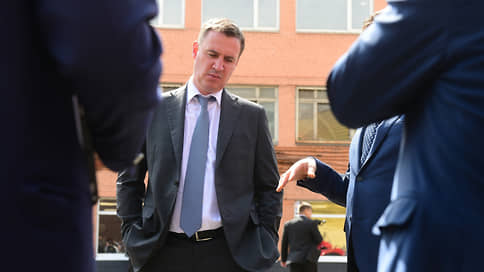The Ministry of Agriculture stimulates grain exports by refusing state interventions
[ad_1]

Yesterday, the Ministry of Agriculture announced that it has no plans to purchase grain interventions until the end of the year, explaining that there is no need to remove the surplus from the market. There were no prerequisites for new purchases to the state fund, however, the department uses the rejection of state interventions as a tool to influence market sentiment. The first decline in grain export shipments recorded in August gave the Ministry of Agriculture a reason to remind agricultural producers that, in case of a successful market situation, external supplies are not a priority, but the only tool for balancing the market, and they need to be increased.
The Ministry of Agriculture does not plan to buy grain for the intervention fund in 2023, First Deputy Minister Oksana Lut said yesterday. “We have enough grain to ensure domestic food security, so there is no need for purchases,” she stressed. Recall that the mechanism of procurement and commodity interventions is one of the tools for stabilizing prices and supporting agricultural producers, in case of a sharp drop in prices, the state, buying grain, removes excess products from the market, and in case of a sharp increase, it sells it from the state fund. The last procurement interventions – 3 million tons of grain for 47.1 billion rubles – were carried out in 2022.
It should be noted that so far there are no prerequisites for new purchases of grain to the state fund: given the success of the last season and the dollar, they do not need support for the agrarians, but the main and most effective mechanism for combating the excess supply of grain, as both the authorities and experts have repeatedly emphasized, still export. According to the results of the last agricultural year (July 1, 2022 – June 30, 2023), farmers managed to export a record 60 million tons of grain from the country; in July, agricultural producers also did not lag behind the planned values, but somewhat slowed down the pace of shipments in August.
In the first week of the month, the Russian Federation exported 871 thousand tons of grain, which is 43% less than in the same period in 2022, the fall was the first in six months. So far, there is no need to talk about the trend: earlier, the Russian Grain Union noted that among the reasons for the drop in shipments could be the temporary closure of the Black Sea ports and the exhaustion of the export potential of the last season. It should be noted that, taking into account the carry-over stocks of grain, even with a reduction in the harvest relative to the 2022/23 season, the export targets for the Russian Federation in this agricultural year are comparable to last year – 55 million tons. With a new statement about the absence of plans for purchases to the state fund, the authorities are actually reminding agricultural producers of the importance of maintaining stable shipments even in the “off-season”.
Recall that, although the procurement intervention mechanism itself has not been used since last year, statements about it, including somewhat contradictory ones, are made regularly by the authorities, thereby actually influencing market sentiment. Thus, wanting to boost exports, in the first months of 2023, the Ministry of Agriculture regularly emphasized that there would be no purchases for the state fund this year: all such messages were accompanied by similar explanations that the available stocks already guarantee “food security”. The ministry’s rhetoric changed somewhat in March: then officials, trying to contain the farmers’ anxiety in the face of unclear export prospects, first stated that the issue of additional purchases was “being worked out” and there was no complete certainty (see Kommersant on March 7), and after that the government is “considering the possibility” of additionally purchasing up to 7 million tons of grain to the state fund (however, these plans had no funding; see Kommersant of March 24).
Already in May, the head of the Ministry of Agriculture, Dmitry Patrushev, again announced the absence of plans for procurement interventions, in fact, stating the authorities’ confidence that the industry would cope with the remaining difficulties on its own. It should be noted that statements made after the end of the agricultural year, the results of which the authorities were more than satisfied with, fit into this logic (see Kommersant of July 4).
[ad_2]
Source link






